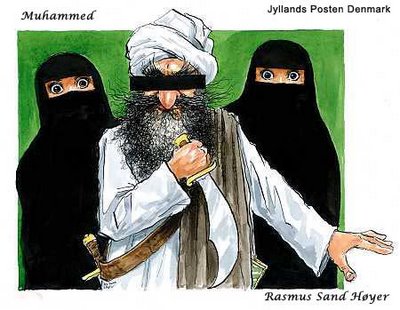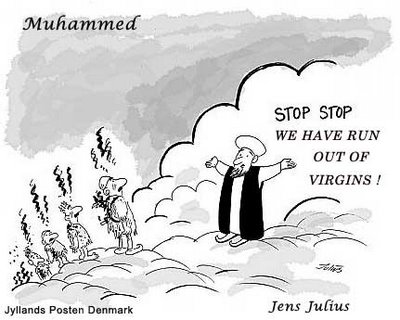In his General Audience of 13 January 1982, the Holy Father continued his exposition of the words of Christ on the general resurrection, as applied to Theology of the Body. In some way difficult to imagine, the meaning of the human body will be revealed as the means of mutual self-giving in the communion of Saints.
New Threshold of Complete Truth About Man
During the general audience in the Paul VI Hall on 13 January, the Holy Father continued his catechesis on marriage in the following address.
1. "When they rise from the dead, they neither marry nor are given in marriage, but are like angels in heaven" (Mk 12:25; cf. Mt 22:30). "They are equal to angels and are sons of God, being sons of the resurrection" (Lk 20:36).
The words in which Christ refers to the future resurrection—words confirmed in an extraordinary way by his own resurrection—complete what we are accustomed to call in these reflections the revelation of the body. This revelation penetrates the heart of the reality that we experience, and this reality is above all man, his body, the body of historical man. At the same time, this revelation permits us to go beyond the sphere of this experience in two directions—first, in the direction of that beginning which Christ referred to in his conversation with the Pharisees concerning the indissolubility of marriage (cf. Mt 19:3-8); then, in the direction of the future world, to which the Master addressed the hearts of his listeners in the presence of the Sadducees, who "say that there is no resurrection" (Mt 22:23).
2. Neither the truth about that beginning of which Christ speaks, nor the eschatological truth can be reached by man with empirical and rationalistic methods alone. However, is it not possible to affirm that man bears, in a way, these two dimensions in the depth of the experience of his own being, or rather that he is somehow on his way to them as to dimensions that fully justify the meaning of his being a body, that is, of his being a carnal man? As regards the eschatological dimension, is it not true that death itself and the destruction of the body can confer on man an eloquent significance about the experience in which the personal meaning of existence is realized? When Christ speaks of the future resurrection, his words do not fall in a void. The experience of mankind, and especially the experience of the body, enable the listener to unite with those words the image of his new existence in the "future world," for which earthly experience supplies the substratum and the base. An adequate theological reconstruction is possible.
3. To the construction of this image—which, as regards content, corresponds to the article of our profession of faith: "I believe in the resurrection of the dead"—there greatly contributes the awareness that there exists a connection between earthly experience and the whole dimension of the biblical beginning of man in the world. If at the beginning God "created them male and female" (cf. Gn 1:27); if in this duality concerning the body he envisaged also such a unity that "they become one flesh" (Gn 2:24); if he linked this unity with the blessing of fertility, that is, of procreation (cf. Gn 1:29); if speaking before the Sadducees about the future resurrection, Christ explained that "In the resurrection they neither marry nor are given in marriage"—then it is clear that it is a question here of a development of the truth about man himself. Christ indicated his identity, although this identity is realized in eschatological experience in a different way from the experience of the beginning itself and of all history. Yet man will always be the same, such as he came from the hands of his Creator and Father. Christ said: "They neither marry nor are given in marriage," but he did not state that this man of the future world will no longer be male and female as he was from the beginning. It is clear therefore that, as regards the body, the meaning of being male or female in the future world must be sought outside marriage and procreation, but there is no reason to seek it outside that which (independently of the blessing of procreation) derives from the mystery of creation and which subsequently forms also the deepest structure of man's history on earth, since this history has been deeply penetrated by the mystery of redemption.
Unity of the two
4. In his original situation man, therefore, is alone and at the same time he becomes male and female: unity of the two. In his solitude he is revealed to himself as a person, in order to reveal, at the same time, the communion of persons in the unity of the two. In both states the human being is constituted as an image and likeness of God. From the beginning man is also a body among bodies. In the unity of the couple he becomes male and female, discovering the nuptial meaning of his body as a personal subject. Subsequently, the meaning of being a body and, in particular, being male and female in the body, is connected with marriage and procreation (that is, with fatherhood and motherhood). However, the original and fundamental significance of being a body, as well as being, by reason of the body, male and female—that is precisely that nuptial significance—is united with the fact that man is created as a person and called to a life in communione personarum. Marriage and procreation in itself do not determine definitively the original and fundamental meaning of being a body or of being, as a body, male and female. Marriage and procreation merely give a concrete reality to that meaning in the dimensions of history.
The resurrection indicates the end of the historical dimension. The words, "When they rise from the dead, they neither marry nor are given in marriage" (Mk 12:25), express univocally not only the meaning which the human body will not have in the future world. But they enable us also to deduce that the nuptial meaning of the body in the resurrection to the future life will correspond perfectly both to the fact that man, as a male-female, is a person created in the "image and likeness of God," and to the fact that this image is realized in the communion of persons. That nuptial meaning of being a body will be realized, therefore, as a meaning that is perfectly personal and communitarian at the same time.
5. Speaking of the body glorified through the resurrection to the future life, we have in mind man, male-female, in all the truth of his humanity: man who, together with the eschatological experience of the living God (the face to face vision), will experience precisely this meaning of his own body. This will be a completely new experience. At the same time it will not be alienated in any way from what man took part in from the beginning nor from what, in the historical dimension of his existence, constituted in him the source of the tension between spirit and body, concerning mainly the procreative meaning of the body and sex. The man of the future world will find again in this new experience of his own body precisely the completion of what he bore within himself perennially and historically, in a certain sense, as a heritage and even more as a duty and objective, as the content of the ethical norm.
Mutual communication
6. The glorification of the body, as the eschatological fruit of its divinizing spiritualization, will reveal the definitive value of what was to be from the beginning a distinctive sign of the created person in the visible world, as well as a means of mutual communication between persons and a genuine expression of truth and love, for which the communio personarum is constituted. That perennial meaning of the human body, to which the existence of every man, weighed down by the heritage of concupiscence, has necessarily brought a series of limitations, struggles and sufferings, will then be revealed again, and will be revealed in such simplicity and splendor when every participant in the other world will find again in his glorified body the source of the freedom of the gift. The perfect freedom of the children of God (cf. Rom 8:14) will nourish also with that gift each of the communions which will make up the great community of the communion of saints.
Difficult to envisage
7. It is all too clear—on the basis of man's experiences and knowledge in his temporal life, that is, in this world—that it is difficult to construct a fully adequate image of the future world. However, at the same time there is no doubt that, with the help of Christ's words, at least a certain approximation to this image is possible and attainable. We use this theological approximation, professing our faith in the resurrection of the dead and in eternal life, as well as faith in the communion of saints, which belongs to the reality of the future world.
A new threshold
8. Concluding this part of our reflections, it is opportune to state once more that Christ's words reported by the synoptic Gospels (cf. Mt 22:30; Mk 12:25; Lk 20:34-35) have a decisive meaning not only as regards the words of Genesis (which Christ referred to on another occasion), but also in what concerns the entire Bible. These words enable us, in a certain sense, to read again—that is, in depth—the whole revealed meaning of the body, the meaning of being a man, that is, a person incarnated, of being male or female as regards the body. These words permit us to understand the meaning, in the eschatological dimension of the other world, of that unity in humanity, which was constituted in the beginning, and which the words of Genesis 2:24, ("A man cleaves to his wife, and they become one flesh")—uttered in the act of man's creation as male and female—seemed to direct, if not completely, at least especially toward this world. Since the words of the Book of Genesis are almost the threshold of the whole theology of the body—the threshold which Christ took as his foundation in his teaching on marriage and its indissolubility—then it must be admitted that the words reported by the Synoptics are, as it were, a new threshold of this complete truth about man, which we find in God's revealed Word. It is indispensable to dwell upon this threshold, if we wish our theology of the body—and also our Christian spirituality of the body—to be able to use it as a complete image.






















